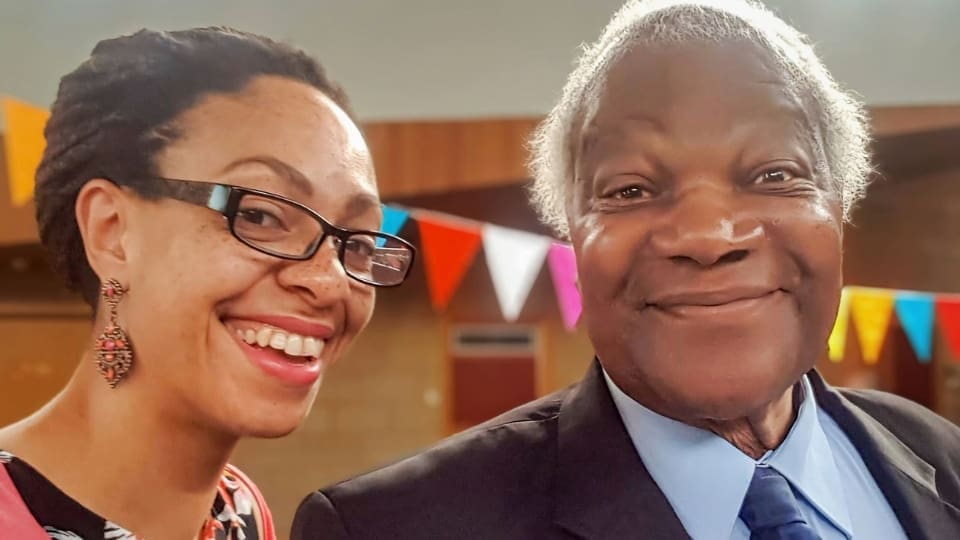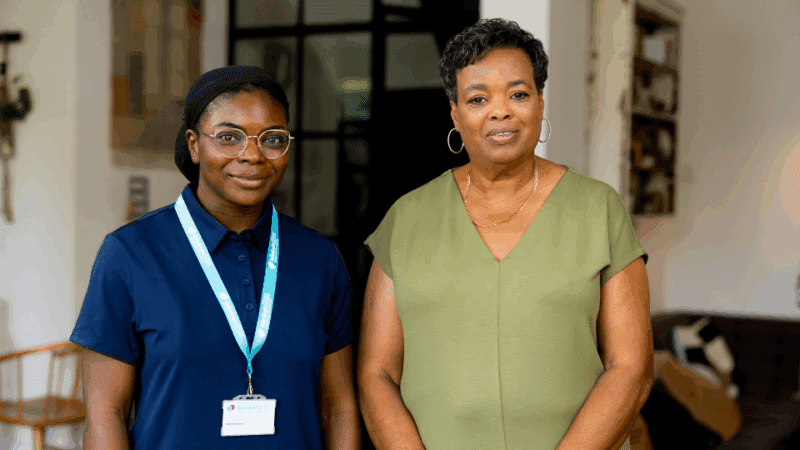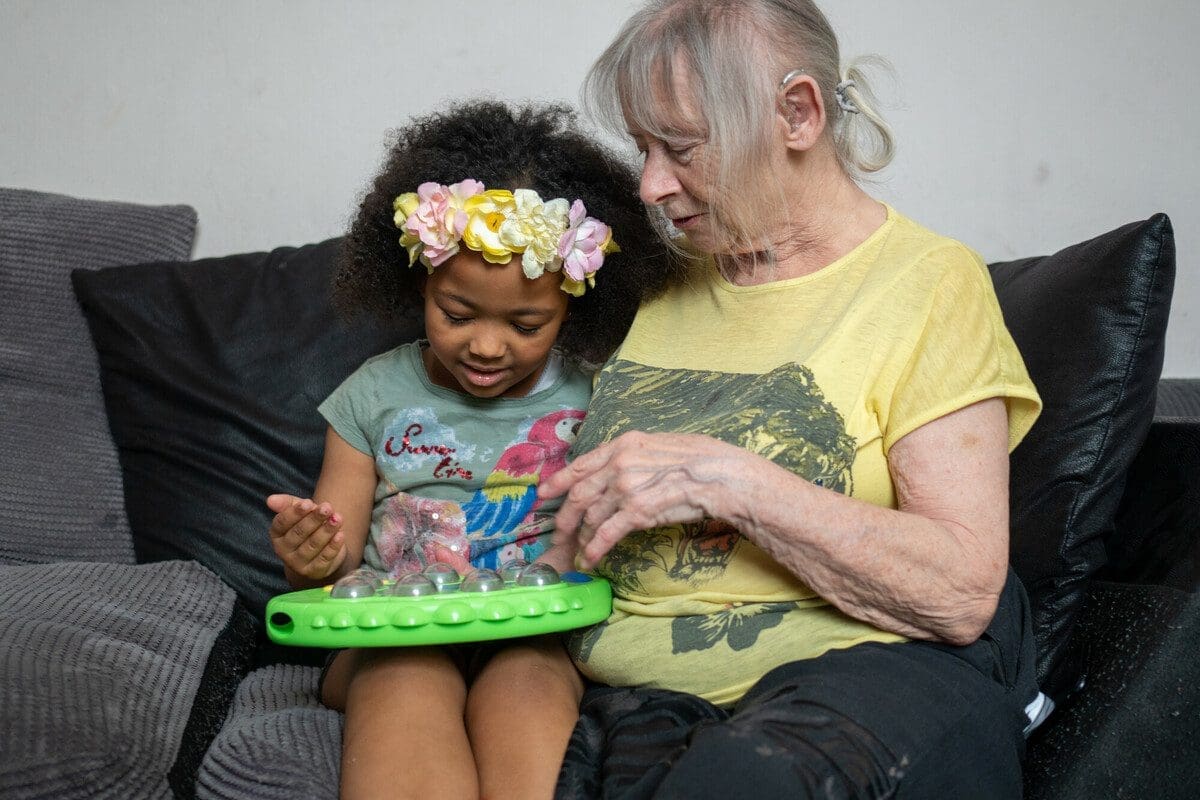Mixed dementia
Find out more about mixed dementia including symptoms, progression, diagnosis and more, as well as the support available to you.

Serena shares how writing poetry has helped her to process her feelings since her dad’s dementia diagnosis.
Dad was a science teacher at the same school for his entire 40-year career. It was even the school that he attended as a child. He was a very well-respected teacher; everyone knew Mr Dove. I was known as ‘Mr Dove’s daughter’ during my teenage years. At home, Dad was the mad scientist, always doing experiments.
In his spare time, Dad coached sports teams and volunteered as a magistrate at the youth court. He was passionate about community and youth work. When Dad retired, many of his past students attended his retirement celebration to say goodbye and wish him well. It was amazing to see how many lives he touched over the years.
Dad also loved poetry and knew so many poems off by heart. That’s where my love for poetry began.
Dad was such an intelligent man and so when he started to forget things, we found it very troubling. He’d always been such a fantastic storyteller; he was so animated and would tell the most elaborate stories from his childhood. But he became quieter in conversation.
At first, we put it down to old age and retirement but then the changes became more obvious. We had a disagreement one day as Dad was adamant that he hadn’t said something, when I knew he had. It was very out of character for him, and it seemed like his personality was starting to change.
Although we suspected dementia, getting a diagnosis was challenging. My mum took Dad to the GP many times and they seemed reluctant to send him for tests. He was eventually diagnosed with mixed dementia in 2022 when he was 76 years old. It knocked us for six. Dad became withdrawn and stopped interacting with us as much. I think he really struggled with the fact that his brain was starting to fail him.
Dad declined steadily between 2022 and 2024. In October 2024 he collapsed and lost consciousness. He was admitted to hospital and hasn’t been the same since. It felt like we lost him overnight.
After a lengthy stay in hospital, Dad moved straight into a care home. Now, he can’t move; he doesn’t get out of bed and he’s nonverbal. Dad was always the first person I would call for advice – he was a talker. It’s been really difficult not hearing his stories or jokes.
On a recent visit to the care home, I walked in and the first thing Dad said to me was, “Who are you?” It crushed me. It was such a powerful reminder that I’ve lost him and that he isn’t going to get better. He’s lost a whole lifetime of memories that we have together. Dad doesn’t remember who I am now, or any of the past versions of myself.
Nobody can prepare you for watching your loved one disappear in front of your eyes. But if I get a smile or a laugh from Dad, it makes my day. These little moments have become so important because they are rare. On a recent visit, the film ‘Cat on a Hot Tin Roof’ was on TV. I hadn’t taken much notice of it, but he started laughing. I realised that he was laughing at the film and when I asked if he had seen it before, he started nodding. It was amazing to see a glimpse of Dad and to know that he can connect to some memories.
Dad’s care home recently asked us to nominate someone to represent his legal rights, known as a Relevant Person’s Representative (RPR). None of us really knew or understood what that meant or what the role would entail, so I called Dementia UK’s Helpline and spoke to a lovely Admiral Nurse. She was friendly, supportive and extremely helpful. She provided me with in-depth information on RPR. This put my mind at ease and gave me enough knowledge to make an informed choice about whether I would be able to adopt the role, or whether my sister would be better suited.
Using the Helpline was so simple and the Admiral Nurse made me feel like no question was too big or small. When your loved one is diagnosed with dementia you are immediately put on this rollercoaster of emotion that seems to just keep speeding up. It can be daunting and overwhelming. It is great to know that there is a service to support families through such a difficult time. It made me feel less alone.
I wrote my first poem when I was seven years old. Writing poetry helps me to express how I feel and to make sense of it all, especially since Dad’s diagnosis. By sharing my poetry, it encourages other people to share their experiences of dementia too. It’s such a difficult disease, and you never think it’s going to happen to you or your loved one. My poetry reminds people that they aren’t alone in their feelings. I’ve formed a positive online community where people feel comfortable sharing their stories and supporting each other.
I now use poetry as a way to honour Dad and recently published my own book of poems. I gave Dad a copy and let him know that I wrote it for him. I still can’t bring myself to read the poems to him; it feels too raw, and I don’t want to cry in front of him. But I know my mum has read them to him. I’d also love to read Dad some of his own poems, to see if he can connect to old parts of himself.
I want to keep telling Dad’s story because I know it helps me when I read other people’s stories. My advice to other people in my position is to seek out other people who have experienced dementia who you can talk to.
Find out more about mixed dementia including symptoms, progression, diagnosis and more, as well as the support available to you.

Help us raise vital funds, improve care and support for families facing dementia and spread the word about our specialist dementia nurses.

Sharing your story with Dementia UK can help to inspire and reassure others who may be going through similar things.